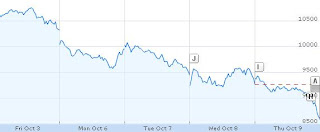The Not-So-Super System
 In The Biggest Game in Town, Al Alvarez often refers to the high rollers he encounters there in Vegas in 1981 as living outside “the system.” The desire to get to that place where the various worries and concerns that plague the rest of us don’t exist is presented as a primary motivator for many of the players Alvarez sketches for us.
In The Biggest Game in Town, Al Alvarez often refers to the high rollers he encounters there in Vegas in 1981 as living outside “the system.” The desire to get to that place where the various worries and concerns that plague the rest of us don’t exist is presented as a primary motivator for many of the players Alvarez sketches for us. For example, Alvarez speaks to Jack Straus, who’d go on to win the World Series of Poker Main Event in 1982. Straus talks about his father who managed a packing plant, and spells out to Alvarez how life was presented to his father. Back in the 30s when his father began his career, Straus explains, “‘you were told you should work until you were sixty-five, then retire on two hundred a month.’” Unfortunately for Straus’s dad, he died at age 58 and thus never got the chance to enjoy the (modest) fruits of his labor.
 Alvarez adds “Straus took that lesson to heart and ordered his life according to two principles: to stay outside the system and to use his talents to enjoy life while he could.”
Alvarez adds “Straus took that lesson to heart and ordered his life according to two principles: to stay outside the system and to use his talents to enjoy life while he could.”To live outside of “system” or the “straight world” is an ideal Alvarez connects with the American “romance of personal liberty.” Ever since Jefferson et al. put down in words that bit about “life, liberty, and the pursuit of happiness,” the yearning to declare anew one’s independence has been an essential part of the American mindset.
Such is further evidenced by the more successful players Alvarez encounters, those who “pride themselves on the fact that they survive spectacularly well outside the system: no bosses or government bureaucrats on their backs telling them what they should do and how they should do it, no routine that is not of their own choosing, no success that is not the result of their own unaided talents. Also no failure.”
The latter point refers to that “different ordering of reality” Alvarez attributes to the high roller. As long as one remains outside of the “system,” one cannot fail. One could call it a different kind of “system,” I suppose, and indeed there are those in the book -- like Jack Binion -- who characterize high-stakes gambling with “straight world” analogies, saying it’s like “a high-risk, high-return investment that is also fun to do.” But that’s just a way to make it make sense to those of us still in the “system,” I think.
Writing here following this incredible stretch of days for the American economy (and the world markets, generally speaking), it is hard not to imagine any of us being able to think we’re fully “outside the system.” The Dow Jones’ 2,000-point tumble over the last week (a precipitous drop of 20%) affects us all. Like most of you, I’m fairly clueless about the byzantine machinations of how exactly the relative health of the stock market and banking system affects the various accounts in which my moneys reside.
But I know I’m affected. I’m in the “system.”
And with the signing into law last week of the ominously-titled Emergency Economic Stabilization Act of 2008 -- giving the Treasury Dept. the ability to purchase troubled assets from financial institutions -- it appears as though whatever happens next we’re all destined to become even further ensnared in the “system.” A place where not only is it impossible to pretend there is “no failure,” but where failure seems to be an accepted premise.
Best of luck to us all.
Labels: *the rumble, Al Alvarez, economy, The Biggest Game in Town














0 Comments:
Post a Comment
<< Home